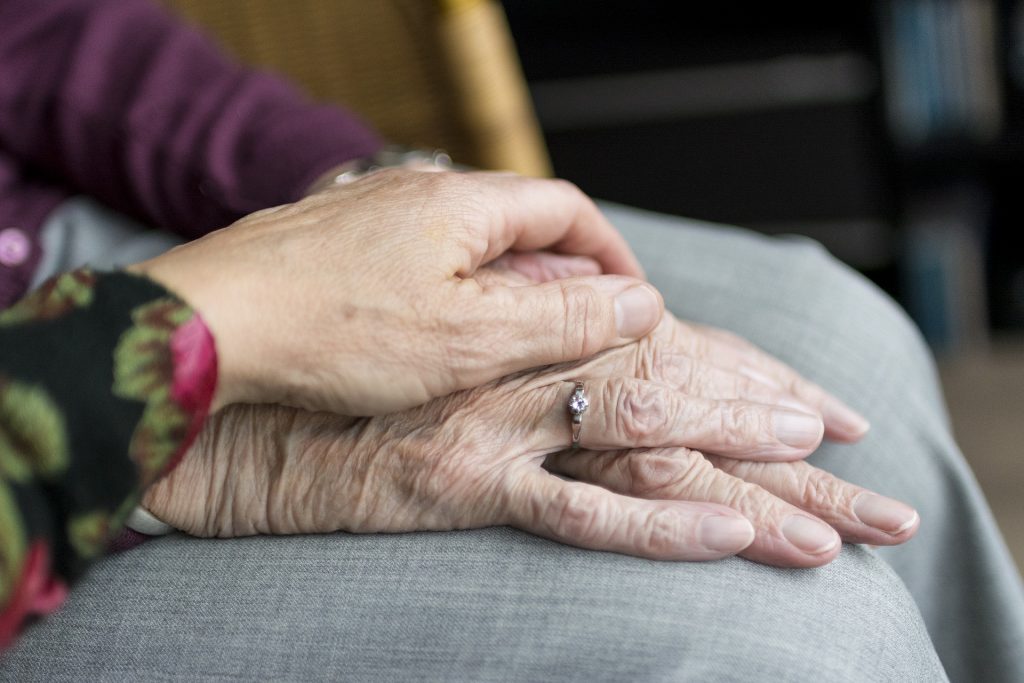People we meet at Genetic Support Foundation often have questions about the genetic aspects of dementia and Alzheimer’s disease. They wonder if Alzheimer’s disease can run in the family. They wonder what their chance to develop Alzheimer’s disease is. They wonder what genetic testing for Alzheimer’s disease is available and what it can reveal.
As with many things in genetics, there are no one-size-fits-all answers to these questions. Reviewing your family and health history as well as your personal beliefs and goals with a genetic counselor can help you understand the current state of information we have with regards to genetics and Alzheimer’s disease and how this applies to your unique situation.
Our understanding of the genetic contributions of Alzheimer’s disease is increasing but we still have much to learn. In most cases, it seems that Alzheimer’s disease is multifactorial, which means there are both genetic and environmental factors at play, and for the most part we still don’t have a great understanding of what all of those factors are.
About 25% of Alzheimer’s disease is considered familial, which means that there are 3 or more people in the same family with Alzheimer’s disease. This means that in most cases (~75% of the time) when someone is diagnosed with Alzheimer’s disease, there is not a strong family history.
Late Onset Alzheimer’s Disease
The average lifetime risk for a person to develop Alzheimer’s disease is 10-12%, and the vast majority (95%) of Alzheimer’s disease is considered “late onset”, which is defined as being diagnosed sometime after the age of 60-65. If you have one first degree relative with late onset Alzheimer’s disease, your risk is to develop Alzheimer’s disease is approximately 20-25%, which is about two times higher than the average risk.
There have been several genetic factors identified that may slightly increase the odds of developing Alzheimer’s disease. One of the most frequently studied genes related to Alzheimer’s disease risk is APOE. The APOE gene codes for the protein apolipoprotein E, which is important for cholesterol metabolism in the body. There are three common different versions (aka “alleles”) of the APOE gene known as e2, e3, and e4. Each of us inherits one copy of the APOE gene from each biological parent. Studies have shown that people who inherit the e4 version of the APOE gene have a higher chance to develop Alzheimer’s disease than those who do not. Individuals who inherit an APOE e4 gene from both parents have about a 25%-35% chance to develop Alzheimer’s disease by age 75.
While many people are learning their APOE status though at-home DNA tests, it is important to understand the limitations of this information. In fact, most people who have the APOE e4 gene will not develop Alzheimer’s disease. It is also important to note that many people who have Alzheimer’s disease do not carry the e4 allele.
Early Onset Alzheimer’s Disease
In rare cases (about 5% of the time) Alzheimer’s disease is considered “early onset”, meaning it is diagnosed before the age of 60-65. Early onset Alzheimer’s disease is more likely to have an identifiable strong inherited component than late onset disease. The main genes associated with early onset Alzheimer’s are APP, PSEN1, and PSEN2. In families with changes in these genes, it is more common to see multiple family members in multiple generations with Alzheimer’s disease onset in the 30’s – 50’s.
Genetic Counseling for Alzheimer’s Disease
Genetic counseling for Alzheimer’s disease involves a review of your personal health and family history so that we may provide a more personalized assessment of your risk. A genetic counselor can answer questions and discuss the potential risks, benefits, and limitations of genetic testing that is currently available, and can help put any testing you have already had done into context.
If you have questions about Alzheimer’s disease and your family, consider scheduling an appointment with one of our board certified genetic counselors.

